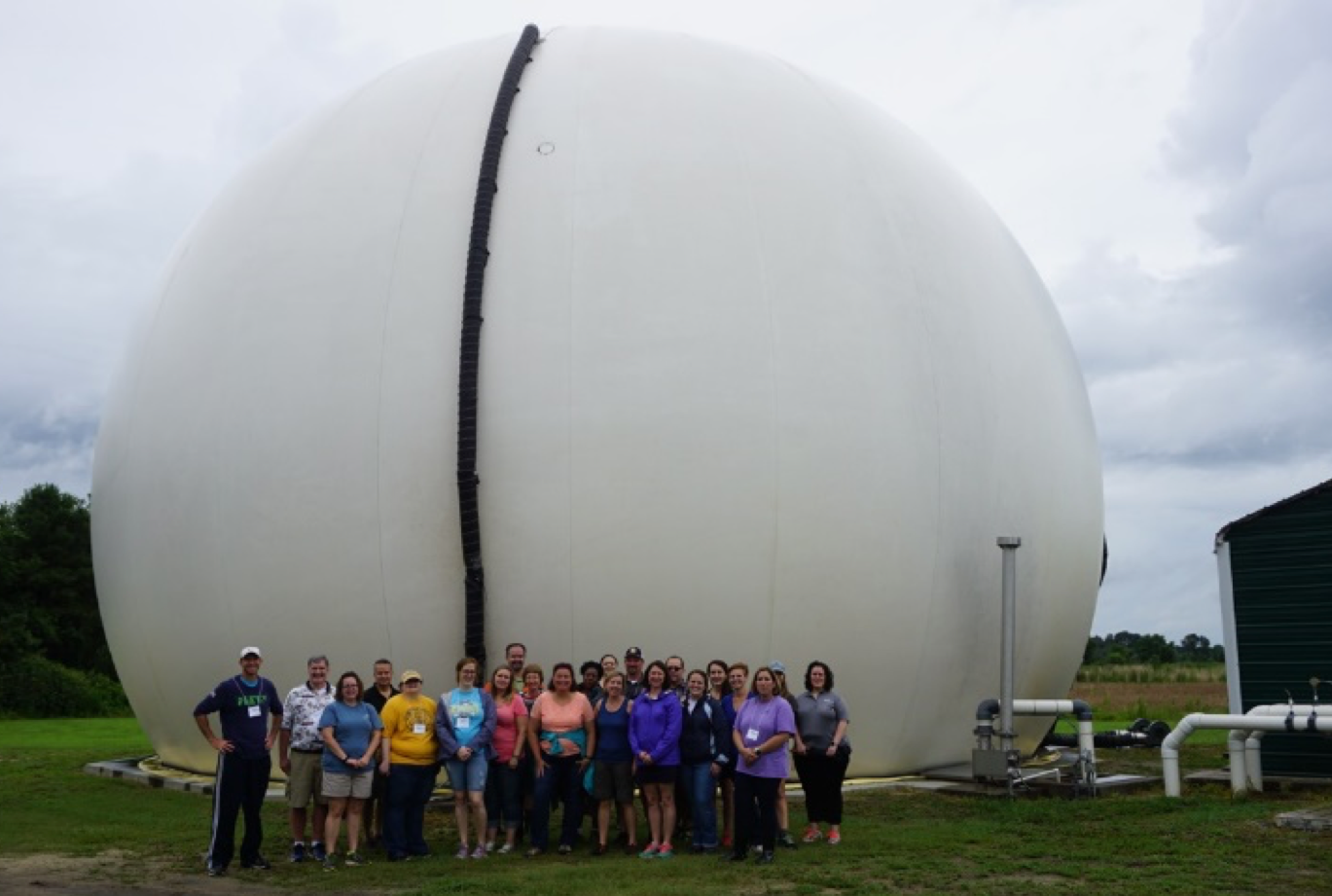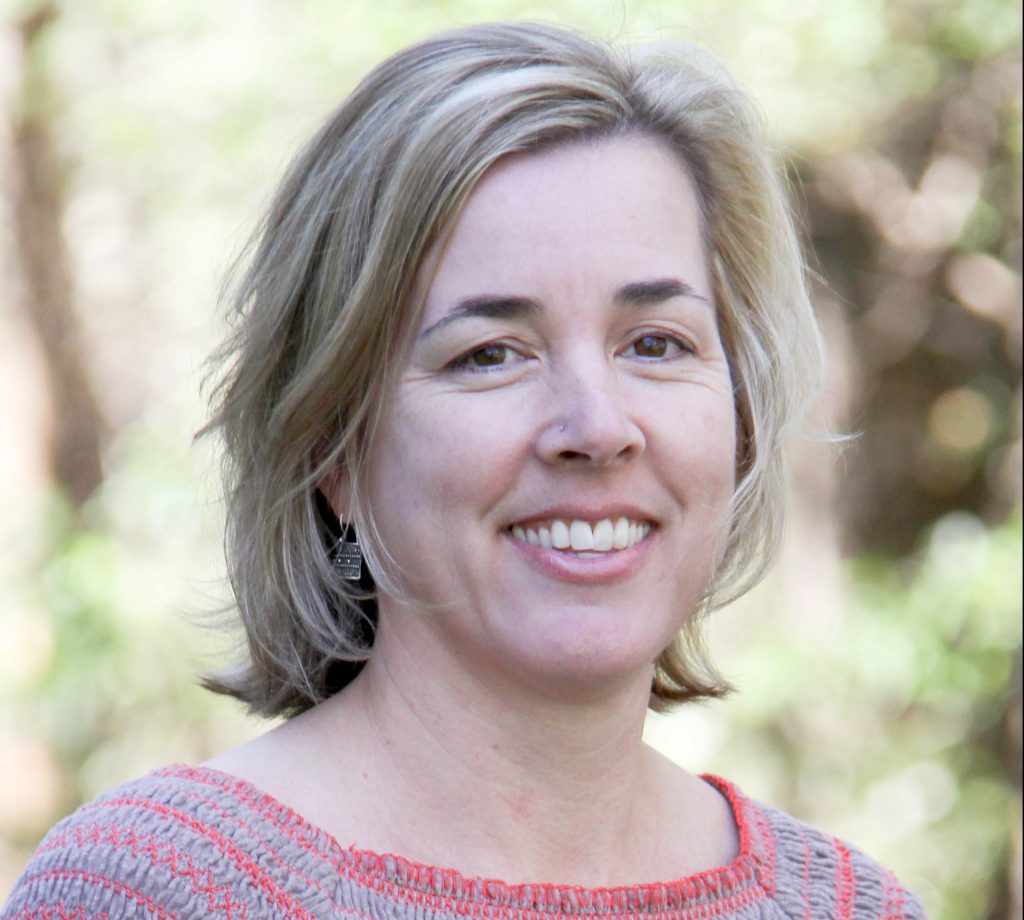By Dana Haine
Dana Haine is the K-12 Science Education Manager at the UNC Institute for the Environment.
Gretchen Bakke, author of The Grid: The Fraying Wires Between Americans and Our Energy Future, writes that while electricity “is situated squarely at the center of our modern lives, for most Americans it barely breaches consciousness.” As the electric grid evolves to accommodate more renewable energy and storage technologies and as the industry seeks to attract new workers, an understanding of the “world’s largest machine” is essential. I am grateful that my work at the IE entails promoting energy literacy among K-12 teachers and students.
This year I am excited to have the opportunity to lead a new year-long professional development program for 20 NC science and technology teachers called the Energy Literacy Fellows Program. This program will:
- showcase current energy science, technologies and careers to enhance the Fellows’ ability to deliver energy-related content;
- conduct science, technology, engineering and math (STEM) activities; and
- promote relevant career opportunities.
Fellows will interact with diverse scientists, engineers and industry representatives to receive up-to-date, curriculum-relevant content and engage in hands-on, inquiry-based activities designed to support learning about the science of energy.
In June 2017, Fellows participated in a three day workshop at UNC titled: “Exploring the Future of the Electric Grid.” The workshop kicked off with a tour of the UNC co-generation plant to give teachers a behind the scenes look at how electricity is generated from coal. After the tour, teachers held a virtual discussion with Gretchen Bakke, a cultural anthropologist and author of the recent book The Grid, who studies the grid and discusses the vulnerabilities that must be addressed as we “green” the grid.
This was followed by presentations on the U.S. electric grid by IE’s Jordan Kern and an overview of the current national and state policies that will shape the electric industry in the years ahead was provided by IE’s Steve Wall. Teachers also participated in activities that can be used to provide students with an interactive approach to learning about the electric grid and the energy sources used to power the grid.
The highlight of the workshop was definitely the “Energy Road Trip.” Just like students, these teachers enjoyed the opportunity to get out of the classroom to gain a better understanding of the state’s energy landscape. Taking back roads in eastern North Carolina, we visited both a swine waste-to-energy facility to learn about biogas production and a utility scale solar farm to witness the increasing role of rural land in energy production.

On the final day of the workshop participants received updates on emerging topics: offshore wind, small modular nuclear reactors, and energy storage. The workshop concluded with a discussion about how all of these emerging and sometimes disruptive technologies will shape the electric grid of the future and require a skilled workforce of not only innovators but also system thinkers.
As evidenced by how engaged the teachers were throughout the three day workshop, I have no doubt they will return to their schools across North Carolina, with a new knowledge base and a motivation to integrate these energy topics into their lesson plans during the upcoming school year. In regards to teaching about the electric grid, 94% of teachers revealed on their workshop evaluations that they will either add this topic or devote additional time to this topic in their instruction.
With financial support from the Duke Energy Foundation I have been developing and implementing energy related teacher professional development experiences since 2009 and to date these efforts to promote energy literacy have reached more than 850 educators across North Carolina. The enthusiasm, motivation and interest I observe in the teachers who participate in these professional development efforts stems from their desire to not only incorporate current energy topics into their teaching, but also to fuel their own quest for knowledge of a topic that is central to our lives.
K-12 science and technology teachers are instrumental not only to increasing the energy literacy of students to develop more informed energy consumers, but also to providing students with the foundational knowledge needed for future career opportunities in the energy sector.


